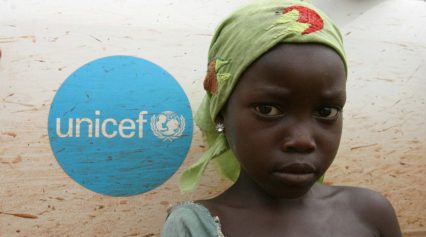Nigeria has gained the crown as Africa’s largest economy, a status that could at last force its government to address more of the country’s socioeconomic shortfalls than its new commercial successes.
The West African nation surpassed longstanding business beacon South Africa over the weekend, after a government statistical revision nearly doubled its GDP output.
The rebased, IMF-endorsed figures place Nigeria’s GDP at $510 billion compared to South Africa’s $353 billion, and include previously unaccounted for sectors and commercial activity–demonstrating greater diversification to the country’s oil rich economy.
“This announcement brings prestige and with that responsibility. Nigeria is now the de facto economic representative for the entire continent,” says Nnamdi Chiekwu, founding partner of the Namdex Group, an Africa-focused private equity advisory firm. “The question is if the government will use that status to get its act together toward better opportunity for rank and file Nigerians. Otherwise, this number may not do anything except shed further light on the country’s challenges.”
Over the last 24 hours, Nigerian government officials such as finance minister, Ngozi Okonjo-Iweala, a Harvard-trained economist and past candidate for World Bank president, have been pressed publicly to explain how the new economic title benefits average Nigerians. Traditional and social media alike are capturing frustration that the revised GDP figures have done little for upward mobility of the oil-endowed country’s vast majority.
Okonjo-Iweala admits as much: “We’ve been growing in an unequal manner. We need better quality growth.” She also recognized the need for more government assistance to the country’s poor.
“Inequality has been rising so we need to build social safety nets meant to take care of those at the bottom of the ladder,” Okonjo-Iweala said, while stressing possible benefits of increased foreign investment and job growth through the nation’s new economic achievements.
Major shortcomings aside, Nigeria’s new economic crown could create the greatest impetus to date for public and private sector reform. While the moniker is currently more symbolic than directly significant to the country’s population, it does reflect Nigeria’s growing connectivity to global capital markets, foreign direct investment, and outside investments.
And what could be even more impactful toward future economic dividends for Nigeria’s rank and file than new GDP stats themselves is the increased transparency and accountability created around their dissemination. The National Bureau of Statistics posted the full data online (government data has been historically difficult to obtain in Nigeria). And since the new numbers were officially released Nigerian public officials have been forced to answer to critical questions on income disparity and jobs to a national and global audience.
Though many standards have not yet increased parallel to Nigeria’s revised GDP, with its new economic status, the government can surely count on one new factor to rise as it inches toward 2015 elections: expectations on better governance by global investors and its people.
Ready the full story at qz.com


